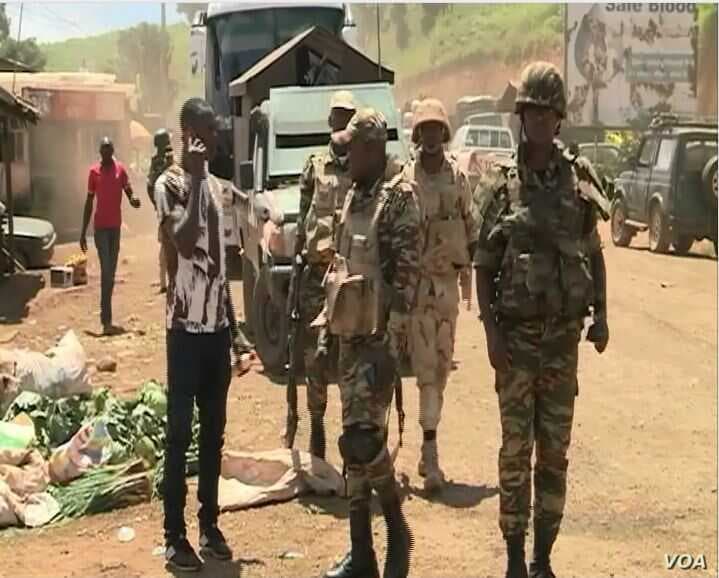YAOUNDÉ, Cameroon – As Cameroon prepares for the start of the 2024/2025 academic year on September 9, the Vatican representative to the country has made a heartfelt appeal for children to be allowed to exercise their right to education.
Separatists fighting for the independence of Cameroon’s two English-speaking regions have made school boycotts a key part of their struggle. For the upcoming academic year, they have declared a two-week lockdown from September 9 to September 23, aiming to disrupt the school year.
The Apostolic Nuncio, Archbishop Jose Avelino Bettencourt, argues that such actions deprive children of their fundamental right to education.
In a Facebook post, he highlights a photo exhibition by Piarist priests and photographer Emily Pina, which captures the wishes of Cameroonian children for peace and the opportunity to attend school.
“Cameroon has become my home and my passion,” Bettencourt begins, pointing to a photo of a child named Peter who says, “Living in peace feels good — just to wake up and go to school without fear.” The Nuncio explains that Peter was prevented from going to school due to violence.
“Our children are our future,” the archbishop emphasizes. “Children suffer the most when there is violence.”
He then issues a passionate plea: “This month of September, let this not prevent children from going to school. Let’s free the children. Let us allow the children to build the future. I add my voice to countless Cameroonians from all walks of life—from north to south, from east to west, not least the voices of the Catholic Bishops of Cameroon: work tirelessly to build the future.”
Quoting Nelson Mandela, Bettencourt states, “Education for all of our children must be one of our most urgent priorities. We all know that educating, more than anything else, improves our chances of building better lives.”
He also cites Pope Francis, who “reminds us that the mission of schools and teachers is to develop an understanding of all that is true, good, and beautiful.”
Since 2017, when the two English-speaking regions descended into violence, students, teachers, and schools have suffered systemic and widespread attacks. By 2021, Human Rights Watch reported that over 700,000 children had been forced out of school in these regions.
Globally, over 250 million children are prevented from attending school due to conflict and violence, according to UNESCO.
“This month of September, please, let the children attend school, and together, let us work for peace,” Bettencourt says, echoing similar pleas from the Bishops of the Ecclesiastical Province of Bamenda, which covers the two regions.
During their 76th Ordinary Meeting held in Bamenda from August 17 to 22, the bishops reaffirmed their determination to implement Christ’s mandate to “teach all nations” and to uphold each child’s fundamental right to education.
The bishops particularly praised Catholic education, describing it as “a powerful tool for human, social, economic, and spiritual development.”
They stated, “It makes a unique contribution to the development of the full potential of everyone and promotes human dignity and collective welfare.” Denying anyone “the possibility of the upliftment that education brings is to sin grievously.”
They consequently made a special appeal to all communities in the Ecclesiastical Province of Bamenda to work together to create a serene and safe environment for the 2024/2025 academic year.
Bettencourt condemned violence as a whole, noting that it is “never justified.” He concluded, “Only peace is the way of the future. Violence comes from evil. Peace and only peace comes from God.”
The violence in Cameroon’s English-speaking regions began in 2016 when the government used lethal force against protesting Anglophone teachers and lawyers who opposed the imposition of French in historically English-speaking schools and courts.
Now in its eighth year, the conflict has claimed thousands of lives. According to Human Rights Watch, at least 6,000 people had been killed by 2022. Additionally, as of August 2022, at least 598,000 people were internally displaced, and around 2 million people required humanitarian aid in the North-West and South-West regions. These figures have likely increased significantly since then.
The roots of the current crisis can be traced back to the end of the First World War when Cameroon was divided between France and Britain following the defeat of the Germans, the initial colonizers of Cameroon.
Upon gaining independence, the two communities retained their distinct educational and legal systems. Continued attempts by the Francophone majority to impose their systems on the Anglophone minority have led to the ongoing conflict.















